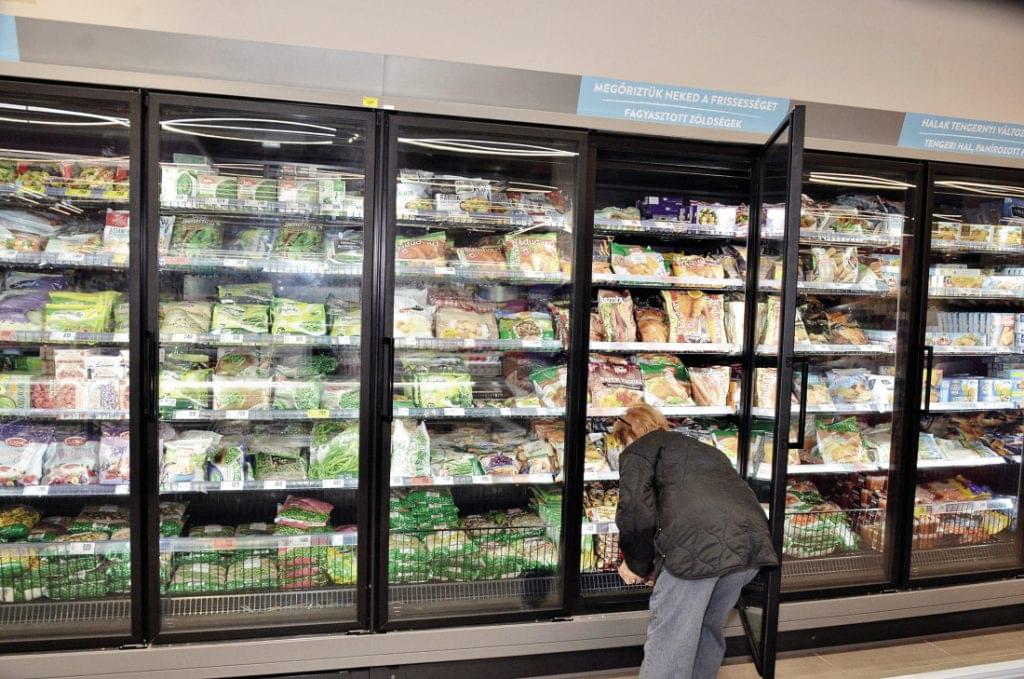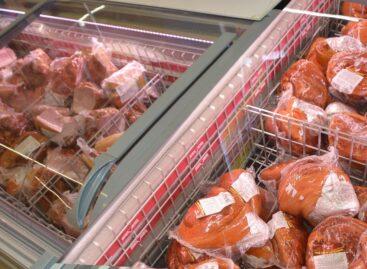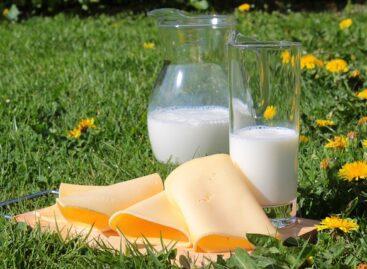Battling for space in the freezers
Tünde Matyasovszky, Bonafarm Zrt.’s senior brand manager (Valdor): “Convenience product sales soared during the pandemic, as people started stockpiling and cooking at home. After the Covid period raw material and energy prices started growing, and this had an influence on the frozen food category. Manufacturers were forced to increase prices and this changed consumption habits, due to which the category’s development came to a halt.”

Extending the assortments of convenience products and those fitting into special diets remains a key to the strengthening of market positions
What will happen to the freezers?
What makes the situation even worse for frozen foods is that growing electricity bills compel shop owners to switch off some of their freezers. Ms Matyasovszky explained that this will mean smaller physical space for the products of different manufacturers in stores, and obviously those products will disappear from the freezers that don’t sell well.

Beáta Bukovenszki
head of domestic
sales
Gallicoop
Beáta Bukovenszki, head of domestic sales at Gallicoop Zrt. talked to us about people spending less time in the kitchen again, now that COVID is over. This trend is generating bigger demand for frozen foods once again, as they can be prepared quickly. “My view is that store managers will turn off soft and alcoholic drink refrigerators first, then the ice cream freezers will follow, as these categories are less important than for instance meat” – she explained.
Barbara Kovács, Maresi Foodbroker Kft.’s junior brand manager: “Switching off refrigerators and freezers can entail the delisting of certain products, but if this will be done based on analysing the demand for, volume sales and the profitability of products, the result will be basically a portfolio a rationalisation.”
Wind of change

Barbara Kovács
junior brand manager
Maresi Foodbroker
Many shoppers are downtiering, buying cheaper products than before, either lower-priced frozen foods or private labels. This trend can be really good news for discounters.
Barbara Kovács told that they don’t want to compete with private labels; instead they do in-out promotions with discounter partners. She added that the wind of change had reached the frozen food market already earlier, so increasing the selection of convenience and special diet products is essential in strengthening market positions. As for product size, Maresi Foodbroker Kft. sees growing demand for bigger formats.
Increased production efficiency results in affordable products
In the current situation Gallicoop focuses on investing in increasing production efficiency. Beáta Bukovinszki told that their innovation work has reacted to the shoppers becoming more and more price-sensitive, manufacturing affordable Gallicoop/Gallio products. Their latest innovation is Gallio frozen turkey meat balls in plain and breaded variants, with green peppercorn and Kyiv sauce filling. They are characterised by high meat content, pleasant spicing and easy preparation, by this saving energy for consumers.
Preservation and renewal
Tünde Matyasovszky believes that right now price promotions work better than costly and timely innovation projects. However, this doesn’t mean that Hungerit has stopped innovating. For instance this year brings a complete renewal for the image of the Valdor brand. Bonafarm Zrt. gave Valdor a modern new logo, and on the packaging of breaded products a new label calls attention to product benefits, e.g. they can be prepared without oil. The new packaging gradually replaced the old one in October 2022. Soon fresh meat products will also bear the new logo. It will take about six months to complete the change.
Innovation based on scientific results

Ádám Nagy
managing director
Nádudvari Élelmiszer
Nádudvari Élelmiszer Kft. also sees how the available space in freezers is diminishing. CEO Ádám Nagy: “It won’t be easy staying on our feet with these conditions, but we believe that the Nádudvari brand is strong enough and our products are good enough to preserve our market positions.” The company’s innovation work is in line with the latest nutrition trends: they have more and more vegan and vegetarian products in the market. They believe that broccoli, breaded cauliflower and similar products represent a perfect alternative for meat eaters too. Nádudvari frozen foods can be prepared quickly, without using oil. //
Frozen food sales are concentrated to bigger stores
Between September 2021 and August 2022, combined sales of frozen vegetables, pizza, spices and ice cream were worth HUF 92bn.

Guest writer:
Nóra Gubek
market research consultant
NielsenIQ
Frozen vegetable value sales didn’t change if compared with the base period, but like-for-like volume sales decreased. Shops with a floor space of 401-2,500m² generated more than half of value sales. Private label frozen vegetables had almost two thirds of the market. Frozen peas dominate with a value share above 25%.
Frozen pizza value sales grew by 18% – HUF 2bn – in the examined period, and the 401-2,500m² retail channel was responsible for 60% of sales. Manufacturer brands realised 52% of frozen pizza sales. Salami pizza was the best-seller, which carved out one fifth of the market in value.
Frozen spice value sales were 4% better than in the base period, representing a value of HUF 98m. 401-2,500m² stores generated almost three quarters of value sales. Private labels had nearly two thirds of the frozen spice market. Frozen parsley was the most popular, generating more than half of value sales in the category. //
This article is available for reading in Trade magazin 2022.12-01.
Related news
Dairy sector: risk of farm closures also arose due to rapid price decline
🎧 Hallgasd a cikket: Lejátszás Szünet Folytatás Leállítás Nyelv: Auto…
Read more >Price isn’t enough, promotions and re(in)novation are lifting the plane
🎧 Hallgasd a cikket: Lejátszás Szünet Folytatás Leállítás Nyelv: Auto…
Read more >Related news
Mercedes-Benz celebrates 140 years of innovation this year
🎧 Hallgasd a cikket: Lejátszás Szünet Folytatás Leállítás Nyelv: Auto…
Read more >NAK President: more than 120 thousand people signed the agricultural petition in one month
🎧 Hallgasd a cikket: Lejátszás Szünet Folytatás Leállítás Nyelv: Auto…
Read more >









